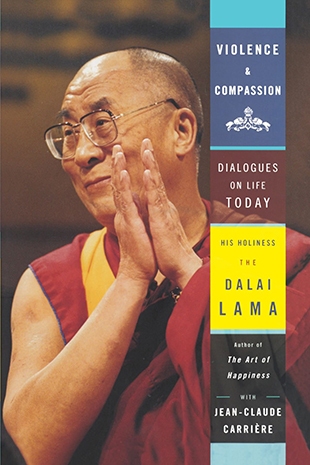"Yesterday, near the hotel, I saw a group of Tibetan children playing very noisily. Their game consisted in pulling all the trash out of a garbage can and throwing it in all directions. I stopped, I wondered, What are they doing? Why?
"They're seven or eight years old. They were born into a garbage filled world. For them nature is full of plastic. That's how it is, they never saw it the way it was before. They don't know that the world used to be beautiful. The very notion of beauty may be something they'll never experience.
"Then what should we do?
"All we have is education. Its our only weapon, along with the example we can set. And this education, from the Buddhist viewpoint, begins with the notion of interdependence. Everything depends on everything else. The life of those children you saw playing is directly bound up with the dirty paper they snatch out of the garbage cans. This has to be said and explained; above all it has to be proved.
"It's a long task.
"Yes, an everyday task that will never be finished. But that's the price we have to pay for our survival and for the quality of our survival. This shared awareness is essential if we want to improve, however little, our own attitude toward the world, our own relationship with it. We must overcome the isolation of our mind, we must renew our ties with the rest of the universe. Otherwise we are lost. Lost because separate. We have to show people, indefatigably, that our interest is the interest of others. And when I say 'others,' I'm not thinking just of human beings, who are evidently the same as us. I'm thinking of all the other forms of life, on this earth and outside this earth.
"So it's not a question of feelings, nor of mortality?
"It's first of all a fact. Now the fact is that we have only one earth, that it is our common mother, and that any harm that we do it necessarily strikes back at us. If we don't pay attention to the earth, we are destroying our own future.
"Can we still save it?
"Of course. Beginning with birth control, which must be promoted as quickly as possible. Along with that, yes, we clear the rivers and the soil and the air we breathe. Yes, we can do it. And this isn't a question of feelings or morality. It's our future that's at stake."
Back to reading a full review of this book.
